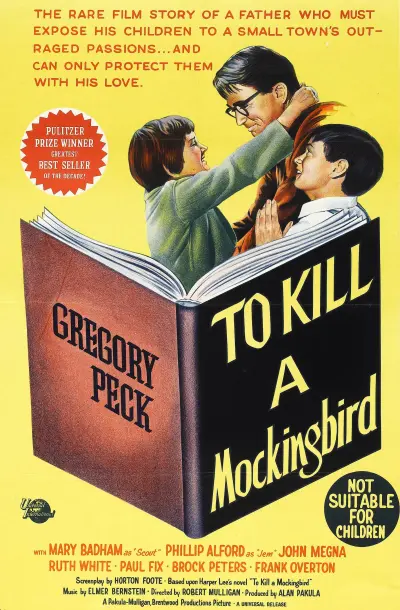
Ah, "To Kill a Mockingbird," the classic American film from 1962! It is a cinematic adaptation of Harper Lee's novel of the same name and serves as a poignant reflection on society, then and now. Set in the 1930s' Deep South in the fictional town of Maycomb, Alabama, the story revolves around the Finch family—Atticus, a widowed lawyer, and his two children, Scout and Jem. Through the innocent eyes of the children, the narrative delves into the complexity of human morality, amidst a backdrop of racial injustice.
The film hinges on the character of Atticus Finch, a paragon of moral integrity and courage. When Atticus takes on the case of Tom Robinson, a Black man falsely accused of assaulting a white woman, tensions in the town escalate. The trial becomes a catalyst, exposing the deep-rooted racism and prejudice that has plagued the community for years.
Its brilliance lies in the seamless manner in which it intertwines various themes—racial injustice, classism, and the loss of innocence—without overwhelming the audience. Guided by their father's principled example, Scout and Jem strive to comprehend the reasons behind the inequality and hatred they witness. The film's title serves as a metaphorical instruction, underscoring the sinfulness of harming a mockingbird—a symbol of innocence and purity. Tom Robinson and Boo Radley, a reclusive neighbor, are analogous to these vulnerable creatures, as they are unjustly judged by society.
At its core, the story explores both personal growth and broader societal issues. It traces the coming-of-age journey of Scout and Jem as they navigate a world where upholding moral values often comes at a great cost. Throughout the storm, it is their father's unwavering guidance that keeps them grounded. Atticus's empathetic approach, encouraging Scout to "climb into someone’s skin and walk around in it," becomes a central tenet of the narrative.
Furthermore, the film offers a critique of the supposed "Southern gentility." Underneath the veneer of politeness and propriety, it exposes the hidden ugliness of discrimination and hate—a hypocrisy that permeated society during that era. Even as Atticus passionately advocates for justice and humanity in the courtroom, the audience is left with a searing portrayal of the prevailing societal norms of the time.
In conclusion, "To Kill a Mockingbird" endures as a film that resonates deeply due to its nuanced exploration of human nature and morality. Its narrative and themes lay bare the repugnance of injustice while simultaneously celebrating the potential for kindness and compassion in the face of adversity. It serves as a heartfelt reminder that despite the flaws that exist in the world, integrity and understanding are perennial virtues humanity should strive to embody.

